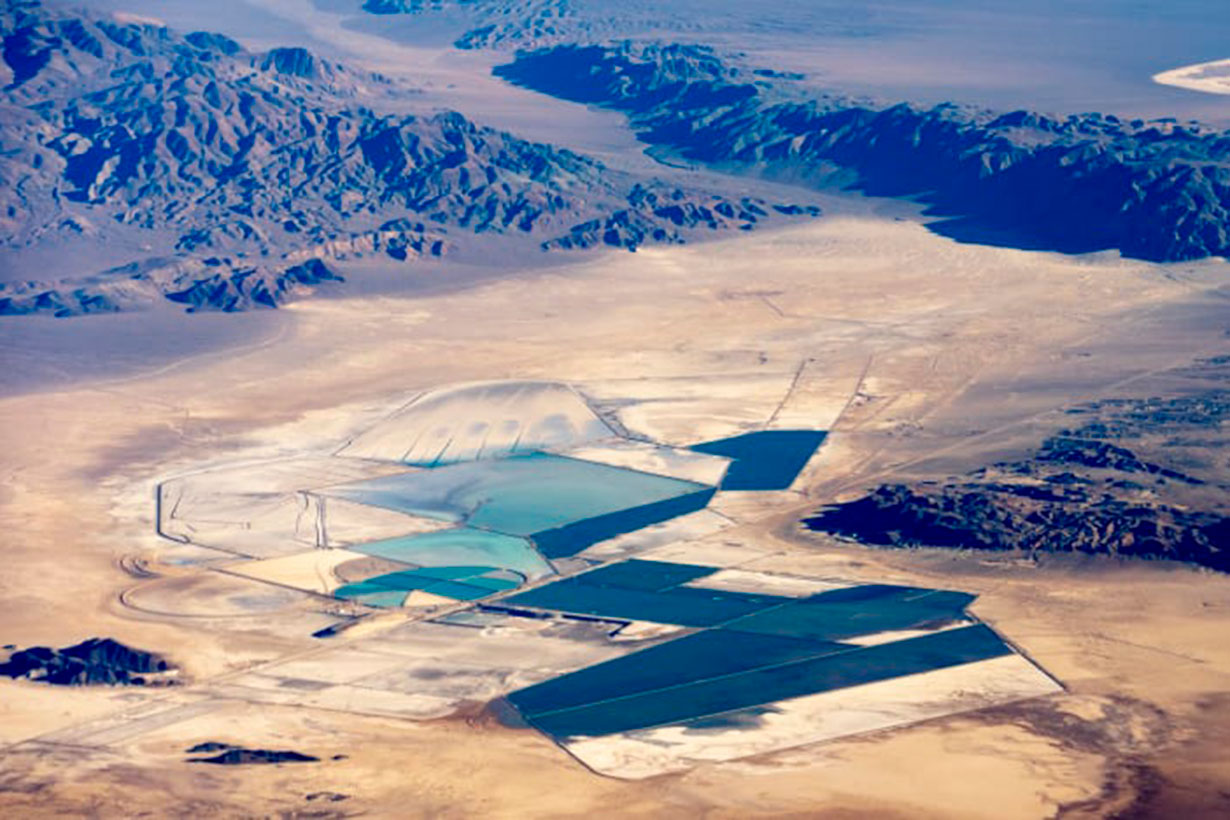CLOSE
About Elements
TANAKA is a leading company in the field of precious metals.
Advanced materials and solutions that support societal progress, the development stories behind them, the voices of engineers, and our management philosophy and vision—
Elements is an online media platform that shares insights that lead to a better society and a more prosperous future for the planet under the slogan “Mastering Precious Metals.”

Is lithium America’s next gold rush?

Call it a 21st-century gold rush: The rise of the electric vehicle industry has set off a chase to discover and control domestic lithium deposits so crucial to making new car batteries, Vice News reported. Across the American West, prospectors are “racing to stake as many claims as they can” — hoping to cash in on the sudden explosion of demand. Why? Right now there is just one active U.S. mine producing the silvery-white metal.
The 49ers went to California in search of gold. Some 23ers are making their home there too, in what some are calling the “Lithium Valley,” CBS’ 60 Minutes reported. One executive said the region could eventually “recover enough of the metal to support 7.5 million electric vehicles a year” — about half of all vehicle sales in America. Texas is getting in on the action too: Tesla this month started production on a lithium refinery, Reuters reported. The continued growth of the EV industry depends on such efforts, said Elon Musk, who called lithium access a “fundamental choke point” in the industry’s advance.
Lurking in the background: Competition with China. Sixty-seven percent of the world’s lithium supplies are currently refined in that country, The New York Times wrote. The U.S. might be slow to catch up — “local and environmental concerns” are slowing down the effort to ramp up production here. Indeed, the Sierra Club called lithium batteries “clean power at a steep price.” What is lithium’s promise? And what is the peril?
What are commentators saying?
Lithium poses a paradox, Marco Tedesco wrote for Columbia Climate School. While the cause of “electrifying cars and other aspects of our society” requires a transition away from carbon-based fuels that warm the climate it is also true that “the transition may not be as efficient as we believe.” Producing lithium batteries creates carbon dioxide pollution that the EV revolution is ostensibly designed to counteract, and the process is water-intensive: “To extract one ton of lithium requires about 500,000 liters of water” and that can create a lot of attendant pollution. That means even as lithium use rises, we should still be looking for alternatives: “Otherwise, we are just going in circles.”
Such concerns are probably overblown, Brad Templeton argued for Forbes. As demand grows for lithium, “efforts will be made to mine it more efficiently and less destructively” especially as policymakers respond with environmental laws. While lithium is currently both difficult and messy, the need to produce a generation of electric vehicles — and the big businesses that plan to profit from them — will create solutions. “When a problem is important, and a huge amount of money is involved, solutions will be found if physics allows them.”
That means environmental activists have to make an uncomfortable choice, Daniel Litvin noted for the London School of Economics. “Environmental activists need to ramp up engagement and collaboration with the mining industry if the energy transition is to be secured.” A “grand bargain” between the lithium mining industry and environmentalists needs to be struck, in which miners agree to meet higher pollution standards and green-minded folks give quicker assent to “genuinely responsible” projects. A “collaborative mindset” will be “a key plank of global climate action in the years ahead.”
What’s next?
The race to take advantage of lithium is a global affair. Canada is positioning itself as a source of the metal for the North American car market, while a Bolivian company is hoping that the country’s rich lithium reserves will help it jump-start a tiny car manufacturer. India, meanwhile, just announced plans to open up its lithium reserves to auction later this year. Those are the possible winners, but there might be losers too: Indonesia, which had targeted 2025 to open its own battery production plant, is seeing those plans falter for a lack of lithium.
Alternatives may be on the way: Salt. Sodium-ion batteries “have been around for decades,” CNBC noted, but fell by the wayside as lithium technology surged into widespread use. “The technology is now getting a second look.” Similarly, GreenBiz reported researchers are looking at the possibility of producing lithium-sulfur batteries as a cheaper alternative to the current lithium-ion batteries.
America’s conversion to clean energy depends on such efforts, said E&E News. The Biden administration’s push to produce electric vehicles is a gamble “the U.S. will be able to secure enough critical minerals” to build all those new car batteries.
This article was written by Joel Mathis from The Week US and was legally licensed through the Industry Dive Content Marketplace. Please direct all licensing questions to legal@industrydive.com.
![]()







